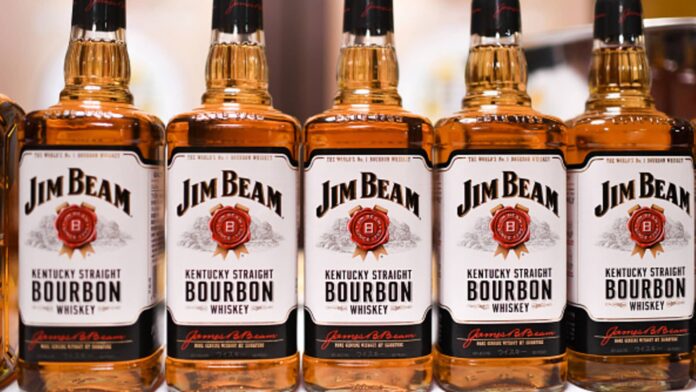Bottles of Jim Beam Kentucky Straight Bourbon whiskey stand on display during a news conference in Tokyo, Japan, Jan. 30, 2020.
Noriko Hayashi | Bloomberg | Getty Images
Beam Suntory said Wednesday it is aiming to produce more Jim Beam bourbon while cutting back on its greenhouse-gas emissions.
The company, which is owned by Japanese parent Suntory, said it would invest $400 million in renewable energy systems while boosting bourbon production at its largest Kentucky distillery.
The Booker Noe distillery in Boston, Kentucky, will see capacity increase by 50%, in order to meet growing demand for its bourbon, the company said Wednesday. It also plans to reduce the distillery’s greenhouse gas emissions by the same percentage.
The company said it will power the facility located about 36 miles south of Louisville with renewable natural gas, which is an upgraded, methane-heavy biogas.
Beam also said it has entered into an agreement with 3 Rivers Energy Partners to build another facility across the street to transfer and convert waste. The process will use a high-quality, low-cost fertilizer, which will also be made available to local farmers, according to the company.
“This expansion will help ensure we meet future demand for our iconic bourbon in a sustainable way that supports the environment and the local community that has helped build and support Jim Beam,” CEO Albert Baladi said.
The project is expected to be completed by 2024. By then, the company said the Booker Noe distillery will be 65% powered by renewable natural gas, and 35% by fossil-based natural gas.
Kentucky Gov. Andy Beshear told the Associated Press the project will create dozens of more jobs in the state and will expand production facilities and warehousing. Kentucky is home to 95% of the world’s bourbon production, according to the Kentucky Distillers’ Association. The state is considered the birthplace of bourbon.
For the first half of 2022, Beam Suntory reported global net sales growth of 13%. It saw growth in the United States as well as overseas in Asian and European markets as demand for spirits remained strong.


